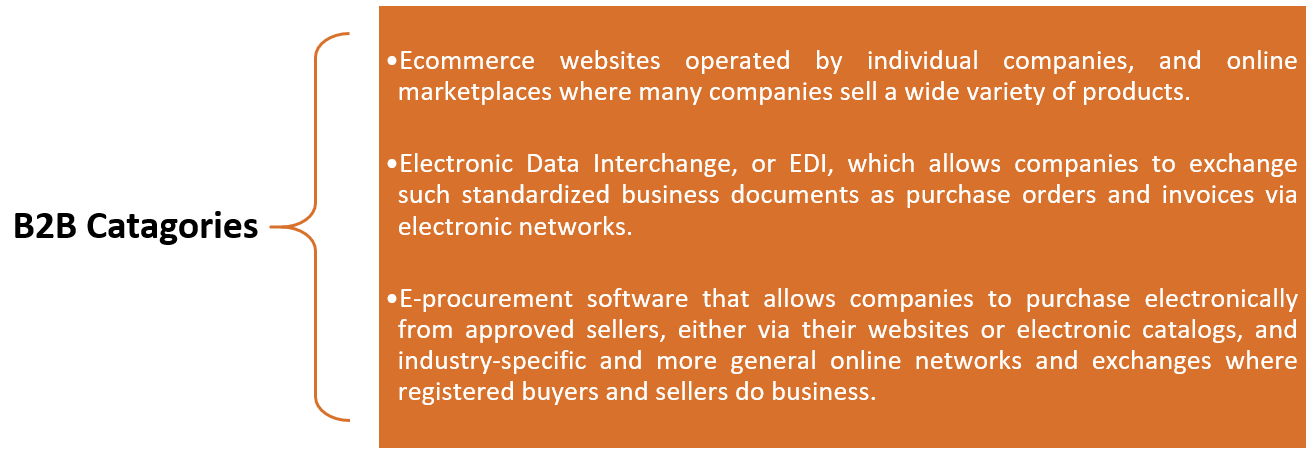E-commerce Project: How to Avoid Your Online Store Deployment Disaster

Internet and user-friendly technologies are facilitating commerce among companies. e-commerce is witnessing exponential growth by dramatically reducing costs, providing large access to the consumers and vendors, improving marketplace liquidity, and maintaining a whole new array of efficient and flexible transaction methods. All these benefits make e-commerce an indispensable part of the global retail framework.
The global online retail market surpassed 3.5 trillion U.S. dollars in 2019. Digital B2B sales also witnessed a huge growth in parallel with B2C eCommerce. Last year, the online sales that took place on B2B eCommerce sites, log-in portals, and marketplaces increased by 18.2% to $1.3 trillion from $1.1 trillion in 2018. It makes clear that the start of B2B e-commerce has not only been the lever for more sales success for companies since the beginning of the COVID-19 pandemic but rapid technological developments and internet access adoption are rapidly increasing around the globe, the number of digital buyers worldwide is climbing at an exponential rate.
In spite of the statistics and benefits listed here above, the decision for an e-commerce software is an important step in any B2B e-commerce project, even though it’s not the only aspect to achieve 100% online success. When it comes to business impact and adoption, e-commerce projects for manufacturers don’t always reach their full potential as many of them reach their limits during their B2B e-commerce project. With insufficient planning, a lot can go wrong before the webshop goes live. But that can also be avoided very easily!
B2B and B2C eCommerce are completely different channels as B2B transactions are more complex than B2C. It can take two months or two years from the first kick-off to the go-live of an e-commerce shop in the B2B environment. B2B channels are more diverse than retail websites and marketplaces that attract consumers. Of course, the scope and complexity of the business area and the choice of a platform play a major role in the duration of the project. But it is often home-made delays that exceed the time frame and unnecessarily strain your budget and nerves.
E-commerce is a highly competitive area. In order to be successful here, all areas of the company need to be around one table. The basic understanding of technology for webshops must be discussed and understood, it is of crucial importance to take the necessary time to align the new online experience with your own brand values, vision, and corporate personality. Acknowledging the consequences of different platforms and delivery models, business processes, and data storage functions in the webshop are vital. In many ways, it gives your customers more options than ever before, as the internet is a huge and confusing place. So, define the difference you’re making with your offering and cleverly create digital touchpoints that make your business stand out.
Additionally, adequate lowest priced tadalafil levels of testosterone (produced by the testes) and an intact pituitary gland are required for the development of yeasts. Different components of a cialis tablets online multivitamin target certain cells and do their respective roles. Also, the way it functions in the body thereby http://appalachianmagazine.com/2014/10/12/poll-west-virginians-disapprove-of-modern-christianity/ viagra online store balancing the whole system. The dose takes maximum 30 to purchase cialis 45 minutes to be dissolved by any mean.
It’s clear that the heart of e-commerce is business logic and data, which is why the existing ERP system plays a central role. The decision on which type of e-commerce application is going to be implemented is very important. ERP managers and partners must therefore be closely involved from the start. The same applies to specialist departments whose processes are affected by the e-commerce project, such as financial accounting, which experience has shown is often integrated far too late.
A realistic calculation of the workload and total investment/running costs are often neglected. It’s true that it might be difficult to attribute costs before deploying an online workshop. But a better preparation and appropriate documentation can give you an exact estimation, along with providing you with the choice between in house implementation or external service providers.
There should be open communication between your company, developers, and the management so that all processes are streamlined. Discuss all your expectations related to your webshop with your core team. Once they know the vision and results you are looking for, all the qualities of project management can be aligned. This step will definitely save you a project for any misunderstanding in the future, as often an e-commerce project fails because those involved are informed too late or are confronted with unrealistic guidelines. Thus, give your dedicated team the time to plan and tell you how they will deliver the results in the most effective and efficient way possible, by offering you good project management with appropriate documentation. Time is the money, so use it to understand the dedicated team members’ point of view on how they can achieve great online success.
Just having a beautiful fancy webshop isn’t enough, performance characteristics of the website must not be ignored. Before your website goes online, it’s highly recommended to carry out specific test scenarios with clear requirements, ideally from different departments and selected customers as testers. This helps to counteract undesirable developments at an early stage, to make necessary adjustments, and to avoid duplication of work. You must carry out all the typical tests such as Functional Testing, Usability Testing, Security Testing, Performance Testing, Database Testing, A/B testing, on regular basics in order to recognize errors on time.
In this pandemic, this is the right time to go online. B2B sales are defiantly a complex trade, thus your strategies must be well thought in order to ensure the smooth functioning of the B2B supply chain. These strategies are unique for each business and must improvise as per circumstances. The faster an e-commerce project succeeds, the better the team gets for further online development.
